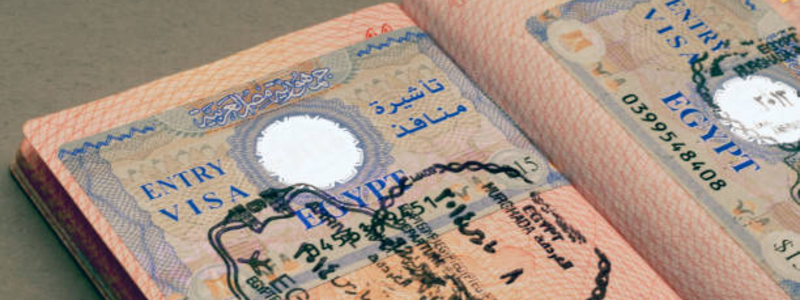
The Egyptian Government has launched a new multiple-entry 5-year visa for eligible nationalities.
The Ministry of Tourism and Antiquities in Egypt announced the decision on March 27, 2023, in addition to other visa policy changes.
Egyptian authorities hope to attract larger numbers of international visitors with this new immigration scheme, which allows travelers to stay in the country for a long period of time using the same visa. It also offers the holder more flexibility with its multiple-entry feature.
The long-term visa is available to certain travelers who meet the Egyptian visa requirements . This includes having the correct paperwork and being from an eligible country.
Why Has Egypt Introduced a Long-Term Visa?
The 5-year multiple-entry visa has been introduced to help boost Egypt’s tourism sector, which has been greatly impacted by the COVID-19 pandemic and the Russia-Ukraine war.
The Egyptian Government hopes to increase annual pre-pandemic tourist figures by 25-30%—from 11.7 million in 2017 to an expected 30 million in 2028.
With the offer of a long-term visa, travel will be more accessible for many international visitors. The multiple-entry characteristic will also help encourage multiple trips to Egypt, without holders having to re-apply for 5 years.
Egypt boosts archaeological discoveries
Another way in which the Egyptian Government is encouraging tourism is through its archaeological sites.
According to Mostafa Waziri, secretary general of the Supreme Council of Antiquities, 2 new statues have been discovered in Saqqara. The village is already home to the Pyramid of Djoser—the oldest complete stone building complex in history, dating back to the Third Dynasty.
The country has also increased the number of museums, with 20 more opening in the past 4 years. Alexandria’s Greco-Roman Museum and the Grand Egyptian Museum, which has been in construction since 2005, will soon open too.
Who Can Get the Multi-Year Visa for Egypt?
Citizens of 180 countries can get the new long-term visa for Egypt. These include all European Union nations, Australia, Canada, the United Kingdom, and the United States.
Travelers with a valid visa from certain countries are also eligible to apply for a 5-year visa. The visa must be issued from a Schengen country, Japan, New Zealand, the United Kingdom, or the United States.
How do eligible travelers apply for a 5-year Egyptian visa?
The multi-year visa for Egypt is a visa on arrival service. Eligible travelers can obtain their visa at designated Egyptian airports.
Those who only intend to visit Egypt and stay for 30 days or less can still obtain a single or multiple-entry visa online. Over 70 nationalities can apply for an electronic visa, through the simple Egypt eVisa form.
Applying for a visa online is faster and easier than requesting a visa on arrival, which does not guarantee approval.
How Much Will the 5-Year Egyptian Visa Cost?
Travelers can get a 5-year Egyptian visa for 700 USD. Depending on the individual’s needs, this may be more cost-effective than numerous single-entry visas.
Those planning a trip to Egypt should consider their travel plans and decide if a 5-year visa is necessary. For many, applying for an Egypt eVisa with multiple entries is sufficient.
What Other Changes Has Egypt Made to its Visa Policy?
The Egyptian Government has made a number of changes to its visa policy, with the intention of making travel more accessible for many nationalities.
During the announcement of the multi-year visa for Egypt, the Ministry of Tourism and Antiquities also stated that more countries have been added to the visa on arrival program, including China, India, and Turkey.
In addition, travelers from Iran and Israel are now included in the visa on arrival program, however they must enter at South Sinai or Hurghada. The trip must also be organized through a travel agency.
Another policy has been introduced for Indian visitors, which allows them to obtain an emergency visa on arrival. They must meet certain criteria, which includes either having residency in a Gulf Country or a visa for Australia, the EU, New Zealand, the UK, or the US.


